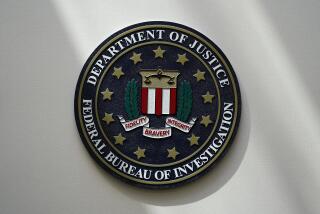Much-Admired Dean of Diplomats : Dobrynin--a Charmer Leaving After 24 Years
- Share via
WASHINGTON — In his 24 years as Soviet ambassador to the United States, Anatoly F. Dobrynin became the longest-serving envoy of any nation in Washington.
But he was far more distinguished by his affable charm, his ease with U.S. presidents and high officials and his knowing ways, even with the American press.
“Don’t attribute it to me,” he said after a recent lunch at the embassy. “You may use or not use whatever I said, but don’t attribute it to me personally.”
In that way, his views--which were undoubtedly the Kremlin’s views, amplified or softened to the best effect by its most able diplomat--were made known in Washington without disturbing his personal relationships with senior U.S. officials. He maintained the confidence of top U.S. officials, despite fluctuations in official relations.
On Tuesday, Dobrynin paid a farewell visit to President Reagan before leaving Washington later this week to take up a position on the Secretariat of the Communist Party in Moscow. There, his detailed knowledge of America and Americans will be at the disposal of Soviet leader Mikhail S. Gorbachev for policy-making decisions.
Praise From Kissinger
Former Secretary of State Henry A. Kissinger, the American official with whom Dobrynin probably had the longest continuous contact, said that “Dobrynin is a man of extraordinary ability who knows the United States very well and whose judgment about the United States is extremely good.”
Kissinger and Dobrynin established the famous “back channel” through which the White House and the Kremlin negotiated key parts of the first strategic arms control agreement, unknown to the State Department and U.S. negotiators. Dobrynin reportedly had a phone with a direct line to Kissinger’s switchboard.
Starting with Kissinger and extending through the Jimmy Carter Administration years, Dobrynin was the only foreign ambassador with parking rights for his limousine in the basement of the State Department. This courtesy was revoked by the Reagan Administration’s first secretary of state, Alexander M. Haig Jr., because U.S. ambassadors in Moscow were more isolated than privileged, whatever the status of official relations.
Counselor in 1950s
Dobrynin, trained as an engineer, came to the United States as embassy counselor in the 1950s for three years, rising to deputy chief of mission before returning to Moscow. He then spent two years at the United Nations before another Moscow tour and presented his credentials as ambassador to President John F. Kennedy in March, 1962.
He was in the Oval Office five months later when his foreign minister, Andrei A. Gromyko, told Kennedy that no Soviet offensive missiles were in Cuba, when Kennedy already had photos proving the opposite. Few officials doubt that Gromyko knew the truth and lied, but many gave Dobrynin the benefit of the doubt and withheld judgment on his veracity.
With his excellent English and quick humor, he seemed a benevolent uncle, tall and somewhat overweight, with a ready wit during small talk but quick to challenge any pointed criticisms of his country.
How much difference Dobrynin made in U.S.-Soviet relations is unclear. Soviet ambassadors generally have less flexibility than their American counterparts, and he rose through the ranks as a career diplomat rather than as a Communist Party functionary--both facts suggesting that he was not an important voice in Soviet policy-making as ambassador.
Appeared Jealous
Dobrynin, for example, at times appeared jealous of the influence that the U.S. press and intellectuals attributed to Georgy A. Arbatov, head of the Institute for the Study of the U.S.A. and Canada in Moscow, who was reputedly an adviser to various Soviet leaders.
How he will now fare in Moscow is also unclear. It may be that the new role of Dobrynin, 66, indicates that Gorbachev intends to give higher priority to foreign policy, including relations with the United States.
But it also may be that his return to an impressive post will be just an empty reward for faithful service, as one Soviet official hinted.
More to Read
Sign up for Essential California
The most important California stories and recommendations in your inbox every morning.
You may occasionally receive promotional content from the Los Angeles Times.










